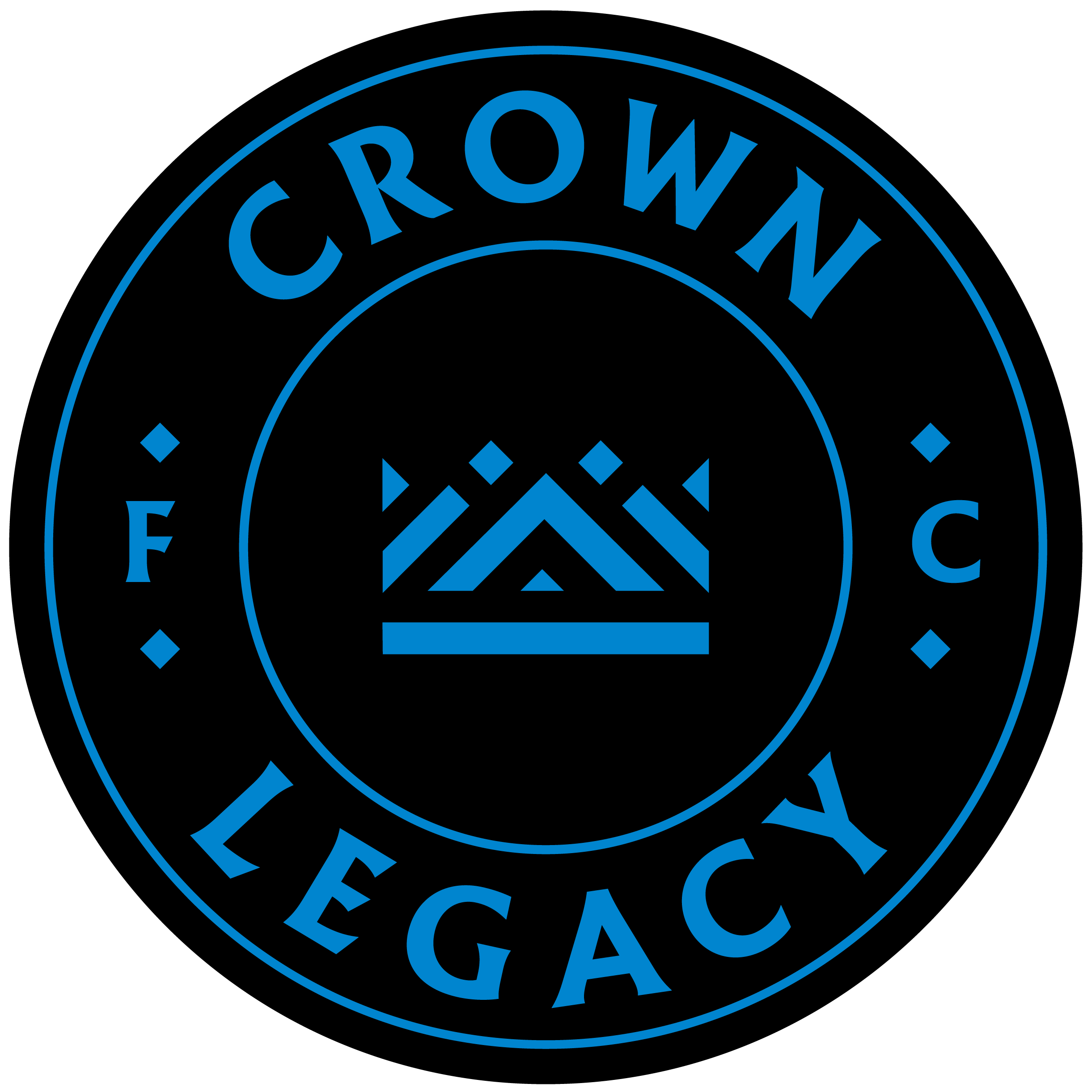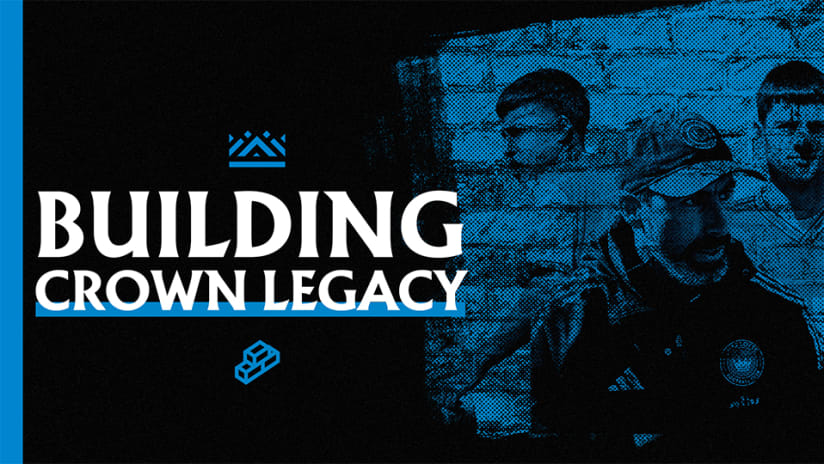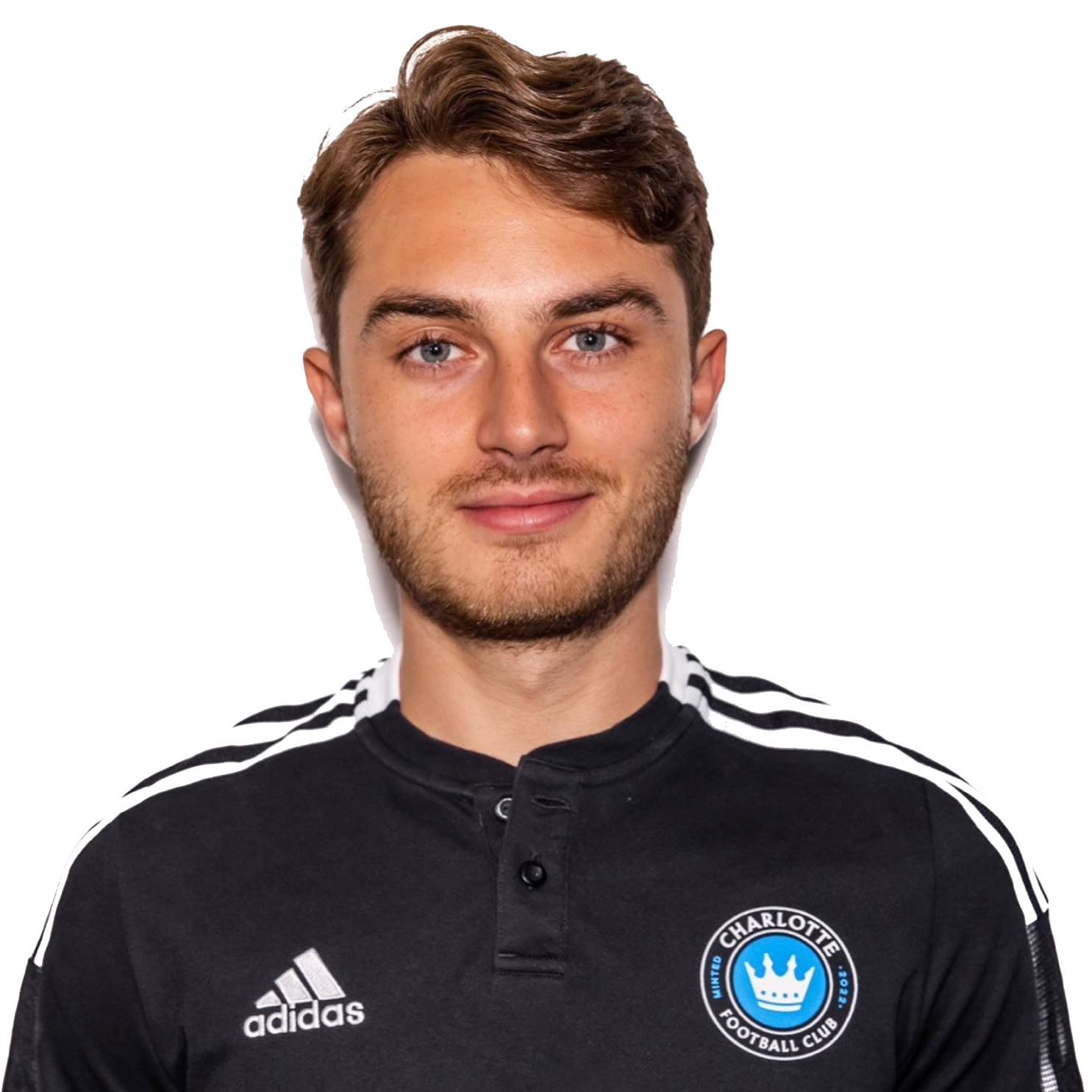The building of Crown Legacy is a complex process because of the unique position the club is in as a bridge between the Academy and the first team. There’s not one specific way to go about it but the end goal is the same – to provide the best environment to develop both domestic and international players for the first team.
Director of Scouting Thomas Schaling shed some light on the unique challenges that come with building a Next Pro side and the process behind it all.
Challenges
Talent identification and recruitment for Legacy shares similarities with how it’s done for the first team, but it has its own share of unique challenges. The core process of how players get filtered through the technical department and coaching staff remains much the same as the first team.
“We know the profiles of the players in each position and look for options in the global market, focusing on our core markets first. Then we try to get to the point where we have anywhere between five to seven options per position, and we present these main targets first,” Schaling said.
With less video footage and data available of young players who play in smaller leagues or youth divisions, live scouting is more heavily relied upon to identify players in the initial phase.
“We immediately knew we needed a dedicated scout for Crown Legacy and Ben Green has done an excellent job in leading our efforts to identify the most interesting players for our newest team. On top of those efforts, our senior scouting team is always keeping their eye out for future high potentials.
Through a continuous loop of feedback and consistent weekly meetings, we are able to stay on top of the next generation of talented players. Once the scouting team has set sight on the most interesting talents, it comes down to determining who the primary targets are and whether these players need Crown Legacy as a platform to develop or whether they are ready to join the first team roster straight away.”
As the main objective of Legacy is to develop players for the first team, the playing level of players they target also differs. Talent identification is more potential-oriented than it is about finding finished products.
“A lot of it is about looking at certain base attributes that you feel are going to translate well to soccer in our league and about what we feel can be further developed in our environment. It’s also important to understand the context of where these players are coming from. I feel both we as a front office, the scouting department and our coaching staff share that understanding, even though there will always be lessons we learn along the way.”
International Market
The scouting department singled out Brazil as an important market for Crown Legacy recruitment. Brazil is a natural fit considering the wealth of unearthed talent within different regions of the country, as well as having a head coach who is not only a native Portuguese speaker but is also familiar with the culture.
Brazil has been the most prominent international market that Legacy has dipped their hand into with the roster currently holding four Brazilians: João Guilherme, Thiago Rodrigues, Josué Rodrigues, and João Pedro.
“We're looking in Brazil because of the vastness of the talent pool and the different levels throughout the country and the various competitions and tournaments. Brazil produces so many good players that it’s only natural that not every talent there can find his way to a high-level first team in his own country.”
Another bonus was the timing of multiple youth tournaments that occurred in Brazil within Legacy’s recruitment window. These tournaments provided an incredible opportunity to watch some of the best young talents in the country all in one location within a reasonable time window. These arduous trips are worth it because tournaments like these also make it easy to immediately follow up with smaller clubs about player transfers. In some cases, deals were made within a week of watching players, but such urgency is a necessity when clubs around the world are competing against you to find the next Brazilian star.
Enticing such players to make the move to an MLS Next Pro side like Crown Legacy isn’t necessarily a tough sell. Charlotte FC wants to create a clear pathway to the first team through Crown Legacy FC, hopefully clearer for these players than if they were to go to the traditional Brazilian giants. To sign these young talents before they get signed to the mega-clubs of the region is a big challenge for a newfound club.
With the influx of international players on Legacy, it begs the question: what about the domestic side of the player pool?
There are two main pools to delve into for domestic players: academy and college. Charlotte FC has had an academy for a bit over three years now and so far have produced three Homegrown signings in Brian Romero, Nimfasha Berchimas, and Jack Neeley. The flip side of the domestic coin is college players who can either be signed or drafted like Ben Bender and Hamady Diop.
International player signings may get the headlines, but domestic players are the backbone of a team. Domestic players often cost less to acquire and don’t need to adapt to a new country and culture in addition to their new club and professional environment.
One could think that bringing in so many international players can stunt the development of local academy players, but the technical department has accounted for that. They’ve purposely staggered the age groups to where most international players brought in won’t overlap or interfere with their development.
Schaling broke down that the Club has a strong 2001 and 2002 age group including Charlotte FC’s Kerwin Vargas (21), Adilson Malanda (21), Vinicius Mello (20), Chris Hegardt (21), Ben Bender (22), and Hamady Diop (20). It’s been further bolstered by college picks and signings this year who are all seen as either immediate contributors to the first team or potentially competing to break into the first team in the short term. Then, there are the older Academy kids who were born 2005 or later such as Romero, Berchimas, and Neeley who are 18 years old or younger and are some of the youngest players within Legacy.
The majority of international signings fall between these two age groups, such as João Pedro (20), Josué Rodrigues (18), Thiago Rodrigues (19) and Serbian Nikola Petković (20). This strategy ensures that there is a consistent pool of young talent in every age group without hindering the development of other players and, if anything, boosting it.
If done right, bringing in foreign talent can elevate the level of the entire development environment. When domestic players have to compete against international talent as well as their domestic counterparts it only breeds more competition, thus creating better players.
"It exposes the younger American players to a different kind of playing style, different kinds of players coming from different cultures. It helps them grow on the pitch as well as off the pitch in different ways, developing skills that transition into the higher levels as the environment pushes everyone to be better.”
Identifying, evaluating, and recruiting players is just one part of the Legacy puzzle; integrating them is a whole other vital task that will greatly influence performance on the pitch.
Integration
Legacy is a melting pot of different age groups, personalities, nationalities, and soccer experiences. The task of blending all this together into one cohesive unit on and off the pitch is a tall order. It starts with a head coach, and there are few more qualified than José Tavares who has spent 14 years doing just this at the highest level.

His experience in developing youth and his fluency in both Portuguese and English are invaluable but the experience within the roster also aids in that. While many players on the Legacy roster haven’t played professionally, there are some who can show others the ropes.
“It’s important to remember that the majority of players at Crown Legacy are new to the type of professional environment our club has created,” said Schaling. “The handful of players that do have this experience will be asked to play an important role in building the culture within the team, but a lot of it will come down to the experienced coaching staff and the people around it. Our number one priority is to develop and prepare players for the first team and everyone at the club is proud of the player potential we have recruited together. But we also want to be a competitive team within MLS Next Pro and have the mentality of competing to win on a day-to-day basis.”
All players on Crown Legacy contracts also live together in the same apartment complex with four players in an apartment. Roommates were carefully selected with the intention of helping accelerate the adaptation process. Making sure that each apartment has a healthy mix of players with different backgrounds and personalities is important, in addition to mandatory English classes for those that are new to the language.
At the end of the day, it’s a continuous process that takes time, but the Club is creating an environment to ease and accelerate the integration proces
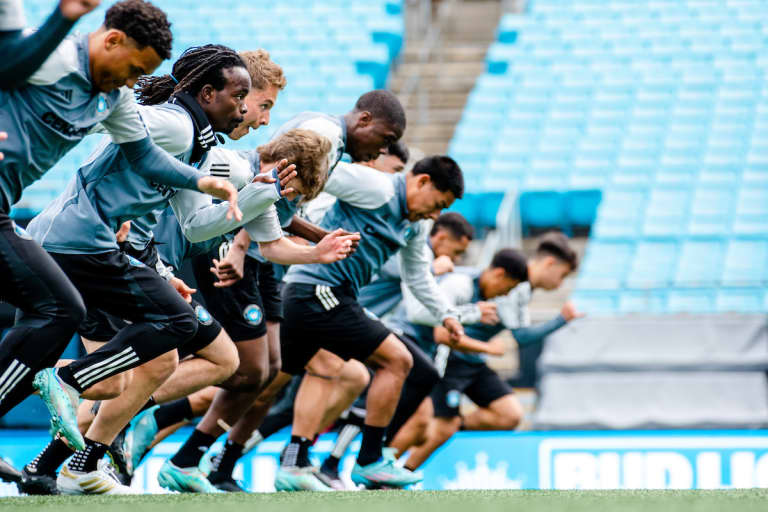
While it could take some time to see the fruits of the labor from Crown Legacy FC, the prospect of being able to watch young exciting talents that could be the future of Charlotte FC week in and week out should excite fans.
The building of the legacy starts here.
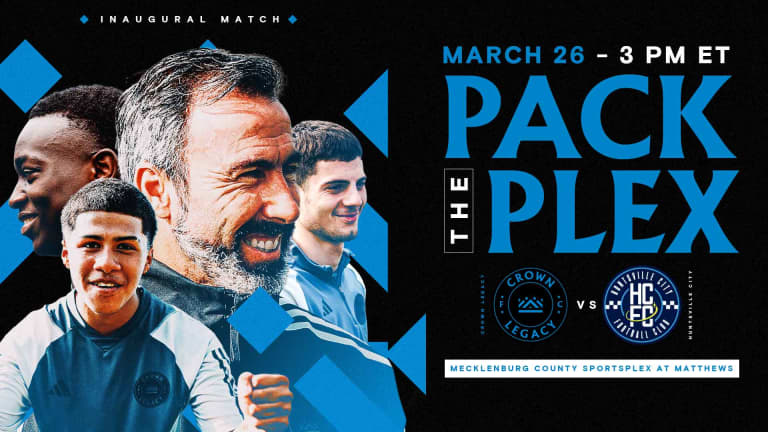
CLFC INAUGURAL MATCH TICKETS
March 26th @ 3PM
Crown Legacy Inaugural Match Tickets NOW ON SALE
